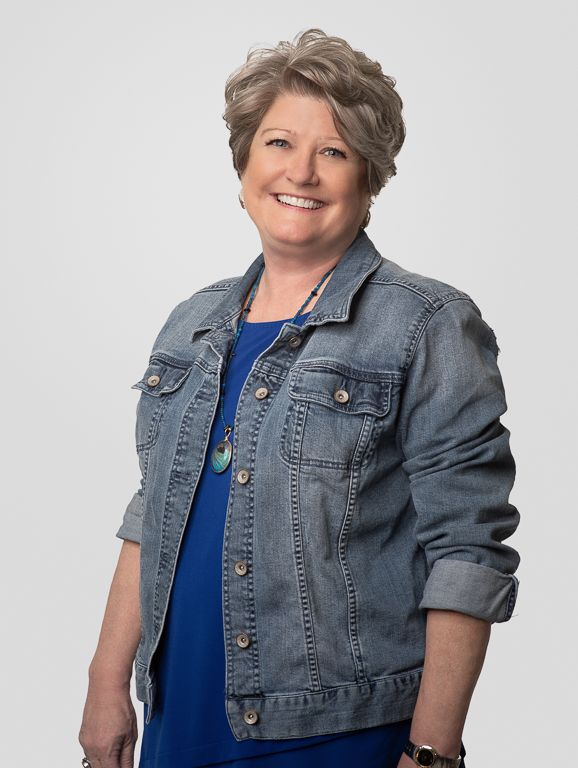
Career Path
Explore how rural medicine offers real-world experience, financial benefits and community connection for early-career physicians.
March 14, 2023
Should you go rural right out of residency? It’s definitely worth considering, as there are many reasons a rural environment can provide a strong launchpad for your career in medicine, says PS&D Senior Recruiter Tessa Kerr.
“With rural practices, you have a unique opportunity to make a huge impact on an entire community,” says Tessa, who has been recruiting for rural Oregon communities for several years. “You’re able to build strong relationships and care for generations of families. I’ve seen this be a really good fit for residents who are just starting out their careers, because it’s so rewarding.”
The advantages of working at a rural practice or hospital are many. You’ll build lasting relationships with your patients, be a valued and integral member of your community, work top-of-license, and enjoy a life of greater ease and affordability (think 5-minute commutes and lower house prices). You can also benefit from the financial incentives offered to many physicians who choose to work in underserved regions.
(Ready to find the right attending job for you? At PS&D, we have hundreds of job listings across the country in a wide variety of practice settings. Find your first job as a physician.
A physician in an underserved area is often one of a handful of doctors in the region. While 20% of the U.S. population lives in rural communities, only 11% of physicians practice in these communities. Choosing to be a rural physician allows you to make an immediate and lasting impact on the community's health.
“There is a real, personal connection to the people and the job in a rural community,” says Mike Shimmens, executive director of 3RNET, the nation’s leading resource for health professionals seeking rural job opportunities. “You can see and understand the impact you have and really have the feeling that you are making a difference.”
Working in a rural area can allow you to become a community leader. Shimmens says it’s common for rural providers to teach school children about nutrition, serve as team physicians for high school sports or volunteer at free clinics — roles that can bring fulfillment while supporting community health.
A rural setting also lends itself to building leaders in the workplace. Doctors can often rise to leadership positions faster than they could in urban health systems. Whether it’s heading up an initiative or participating in system-wide decision-making, rural providers frequently have a seat at the table. This can fast-track a path toward roles like medical director, department chair or faculty lead.

~ Tessa Kerr, Senior Physician Recruiter, PS&D
Rural healthcare providers enjoy a broad scope of practice and have greater autonomy, Shimmens says. This can be especially attractive to new physicians, who are given more opportunities to do what they’ve been trained to do, whether that’s delivering babies, providing emergency care or completing a variety of procedures. Rural roles also give providers the chance to pursue what they’re passionate about, such as well-woman, geriatric or pediatric care.
Not only does providing such a wide range of care help keep skills sharp and current, but rural positions can allow new physicians to develop research and leadership skills, says Tracie Black, physician recruiter at PS&D.
“You should think about your long-term plans and where you want to be in five or 10 years,” Black says. “Don’t assume that rural physician jobs won’t have research, leadership or teaching opportunities. They often do and developing that side of yourself can serve you well in the big picture of your career.”
These sorts of opportunities are important to keep in mind as residents think about their future as a physician.
Most physicians leave residency with six figures of debt. But debt relief is possible and is often more available in rural roles.
“There are many opportunities for incentives, especially if you are looking to work in a rural or underserved community,” says Stacy Kusler, North Dakota Center for Rural Health and Board President of 3RNET. “Loan repayment programs, some federal and some state-level, use Health Professional Shortage Area (HPSA) scores to determine your loan repayment eligibility.”
The National Health Service Corp (NHSC) assigns HPSA scores based on many factors, including the population-to-provider ratio, the percentage of the population below the federal poverty level, and how long someone would have to travel to access care. These scores determine how important it is for an area to hire new providers. The higher the score, the more resources are dedicated to recruiting physicians and other health providers to that area.
“There are many opportunities for incentives, especially if you are looking to work in a rural or underserved community. Loan repayment programs, some federal and some state-level, use Health Professional Shortage Area (HPSA) scores to determine your loan repayment eligibility.”
~ Stacy Kusler, Board President, North Dakota Center for Rural Health and of 3RNET
Kusler’s advice? When looking for a rural healthcare jobs, look for the area’s HPSA score. It won’t guarantee you’ll qualify for loan repayment, as HPSA scores and the number of applications for these programs change yearly. But a higher score makes repayment options more likely.
If you don’t qualify for federal programs like NHSC, you may be eligible for State Loan Repayment Programs. Each state has different programs, and a physician recruiter can help you determine what’s available.
Rural health systems often offer slightly higher base salaries for Primary Care and specialist physicians. With a lower cost-of-living, rural physicians can expect lower rent and housing prices, reduced commuting costs and generally lower prices for goods and services.
Rural communities offer an alternative lifestyle to working in a large, urban city. From affordable housing to good schools to the great outdoors, serving a small community has substantial benefits.
“Often, the right candidate for rural area jobs loves the outdoors,” Black says. “They don’t want to travel to enjoy nature and activities. They want to get outside right after work.”

~ Tracie Black, Senior Physician Recruiter, PS&D
Rural medicine jobs are usually surrounded by mountains and lakes, providing an easy and convenient stress reliever. Activities like hiking, camping, boating, skiing and fishing are easily accessible. Less time in your car and more time spent doing what you love can be an antidote to physician burnout, allowing new physicians to build a life prioritizing balance, wellness and mental health, right from the outset.
Rural life also supports a slower, more intentional lifestyle that can be ideal for starting or growing a family. For new physicians who already have a family, their children can enjoy close-knit, often highly rated public schools with smaller class sizes and more personal attention.
With shorter commutes, lower stress and more time to spend at home, new physicians are often able to enjoy the kind of work-life integration that can be tougher to carve out in fast-paced urban centers. Whether it’s volunteering at a local school, taking up a new hobby or simply having dinner with family every night, rural practice allows doctors to grow personally as well as professionally.
For early-career doctors looking to build a life, not just a resume, rural healthcare can be a strategic and fulfilling first step. Provider Solutions & Development has hundreds of rural roles with dozens of partners across the country. Searching for a rural job right out of residency can feel overwhelming. If you not sure where to start, we can help. As you look for your first attending position remember this: New physicians can make a tremendous difference in the lives of rural patients, and they can lead incredibly rich and fulfilling lives. Learn how working with a recruiter can help you find the right role the first time. Reach out today to get the conversation started.